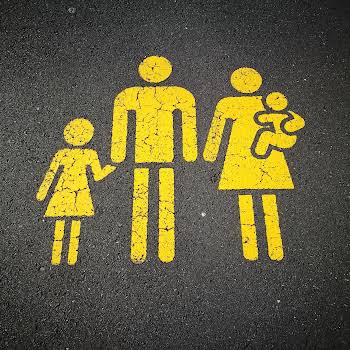By Grace McGettigan
09th Mar 2020
09th Mar 2020
With the number of confirmed coronavirus cases increasing across Ireland, we’re looking at whether or not employees in the private sector are entitled to pay if forced to self-isolate
Earlier this month, Taoiseach Leo Varadkar announced public service workers would receive special leave with pay if they were forced to self-isolate as a result of Covid-19.
He said while arrangements such as working from home should be encouraged, those who have received a Covid-19 diagnosis (and those who are recommended by the HSE to self-isolate) will receive basic pay and fixed allowances. This would not count towards the person’s overall sick leave record, he said.
However, workers in the private sector are eager to know their payment rights too. For that reason, we’ve turned to the Workplace Relations Commission to find out everything employees (and employers) need to know.
Duty of care
All employers have a duty of care to their staff. Under the Safety, Health and Welfare at Work Act 2005, employers must provide the necessary facilities and arrangements for staff to work without risking their wellbeing (such as ensuring you have access to handwashing facilities or enabling you to work from home). Employees also have a responsibility not to pose a threat to their colleagues and/or customers by following all health and safety guidelines.
The Workplace Relations Commission asks that everyone (employees and employers alike) regularly checks the HSE and HPSC’s Covid-19 webpage for information on how to properly protect yourself at work (as well as what to do if you or a colleague presents with symptoms).
This handy checklist can help business owners adequately respond to potential health risks; including policies on hygienic behaviour, flexible working times, and even remote working.
Will I get paid if I have to self-isolate?
Since Leo Varadkar confirmed payments for employees in the public sector, workers in the private sector are eager to know whether or not they will be paid in the event of self-isolation.
The first step in answering this question is to check your employment contract. “Pay arrangements between employers and employees during periods of illness-related absences are dependent on terms and conditions of the contract of employment,” says the Workplace Relations Commission.
If your contract does not cover the issue of sick leave (including precautionary measures such as self-isolation as recommended by the HSE), and if there is no agreed attendance policy laid out, then there is no statutory entitlement for you to be paid.
However, the WRC says, “In such circumstances, employers and their employees should engage proactively and work to be as flexible as possible to resolve any issues arising,” adding that the following options should be explored:
– Working from home or other remote working arrangements where feasible and practical
– Working from an alternative location where feasible and practical.
– Agreement to work back the hours or days lost
– Alternative opening days on a day where the business is normally closed
– The taking of annual leave to avoid employee loss of earnings.
If the above options can’t be achieved, and if your employer’s ability to provide you with work is impacted, then employees may be put on a period of ‘layoff’.
“Periods of layoff are unpaid,” says the WRC, but, “There are a number of social welfare payments that employees may potentially be entitled to”. For further details on this, see gov.ie/department-of-employment-affairs.
If your issues can’t be resolved amicably at work, an employee may make a complaint under the relevant employment rights legislation to the WRC. “Where an employer and employee are agreeable, the Commission may seek to resolve the matter by means of mediation; otherwise the complaint will be investigated by an Adjudication Officer”.
For more information, visit workplacerelations.ie.
Read more: ‘Stop telling me I’ve nothing to worry about’: why I’m scared of the coronavirus
Read more: ‘My bones are aching’: coronavirus patient opens up about his symptoms
Read more: St Patrick’s Day parades are cancelled amid Covid-19 outbreak























